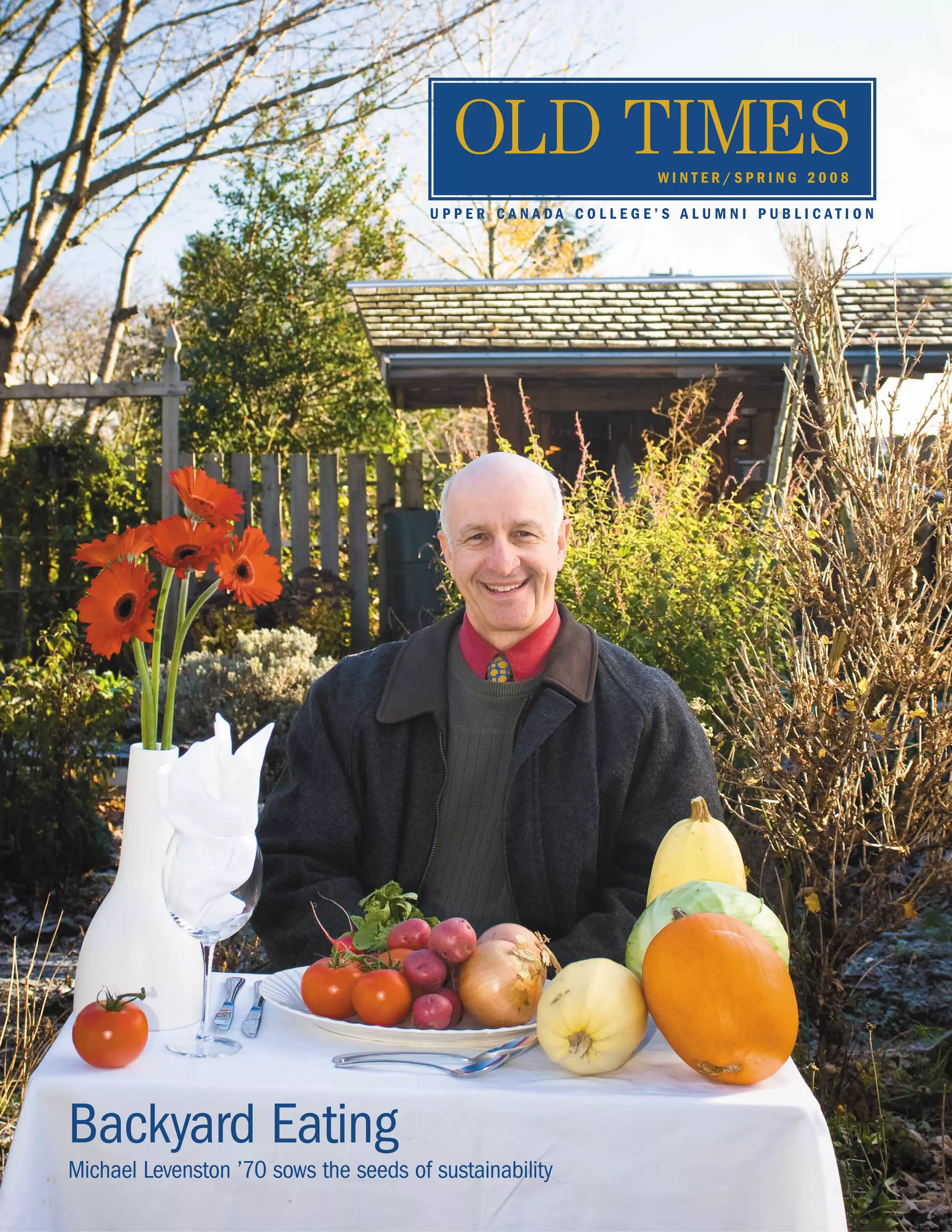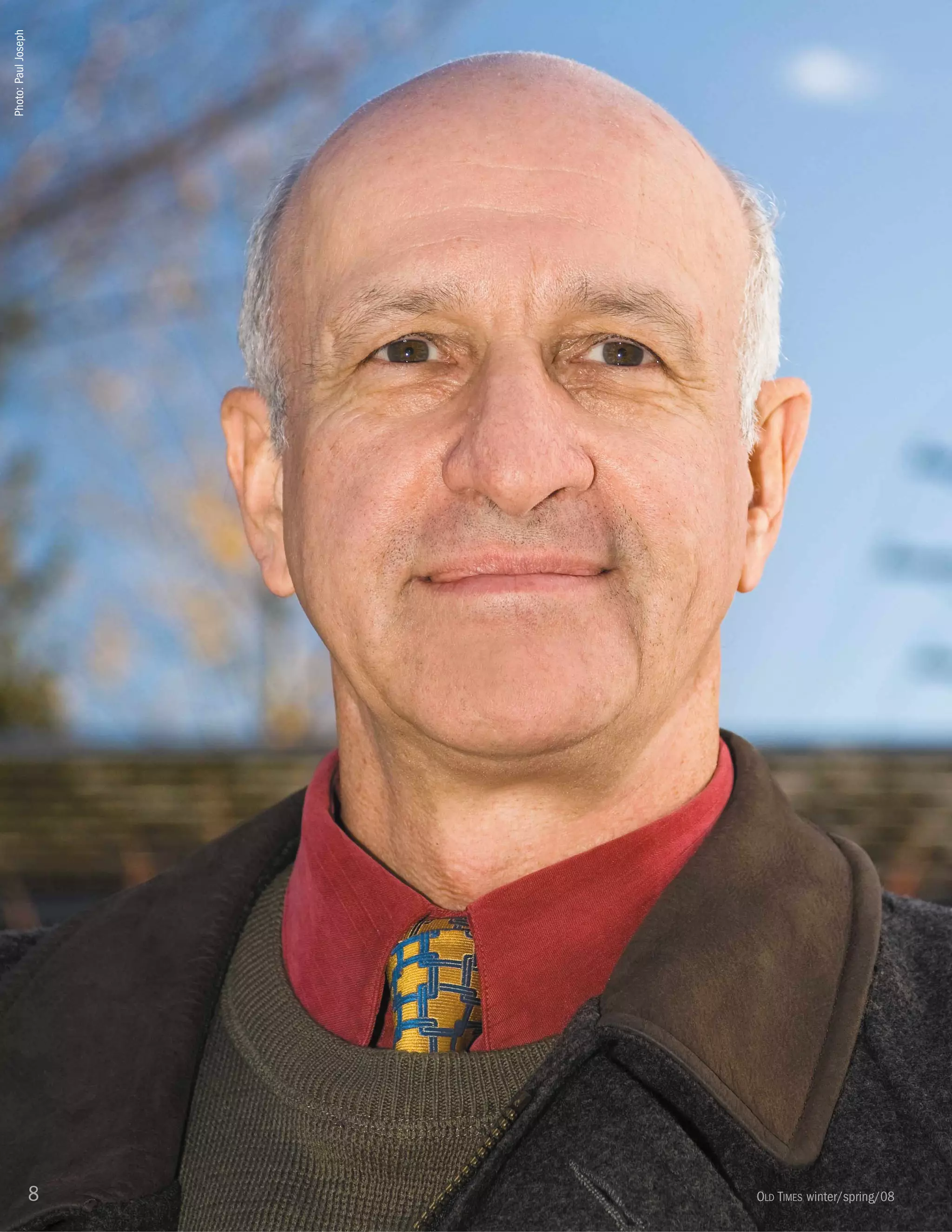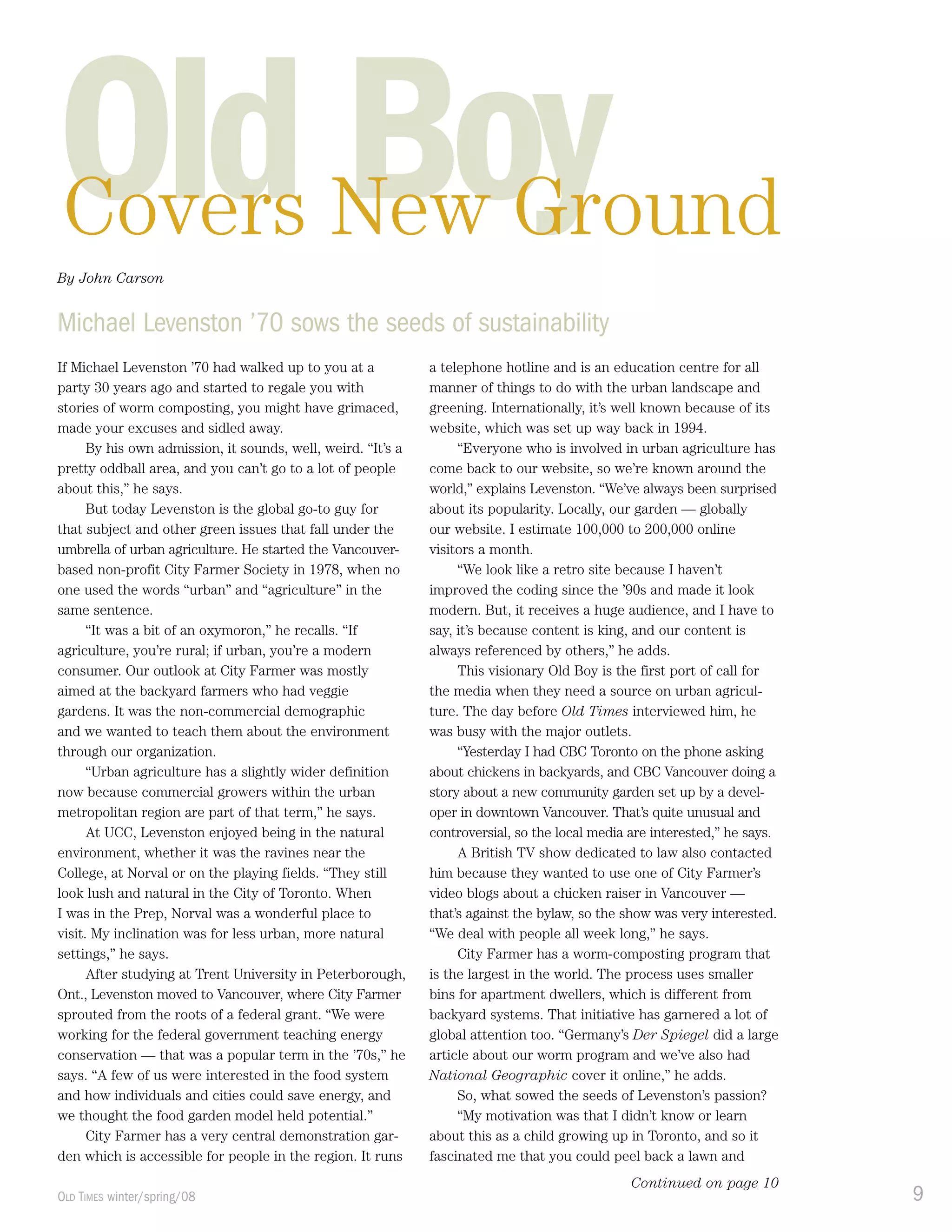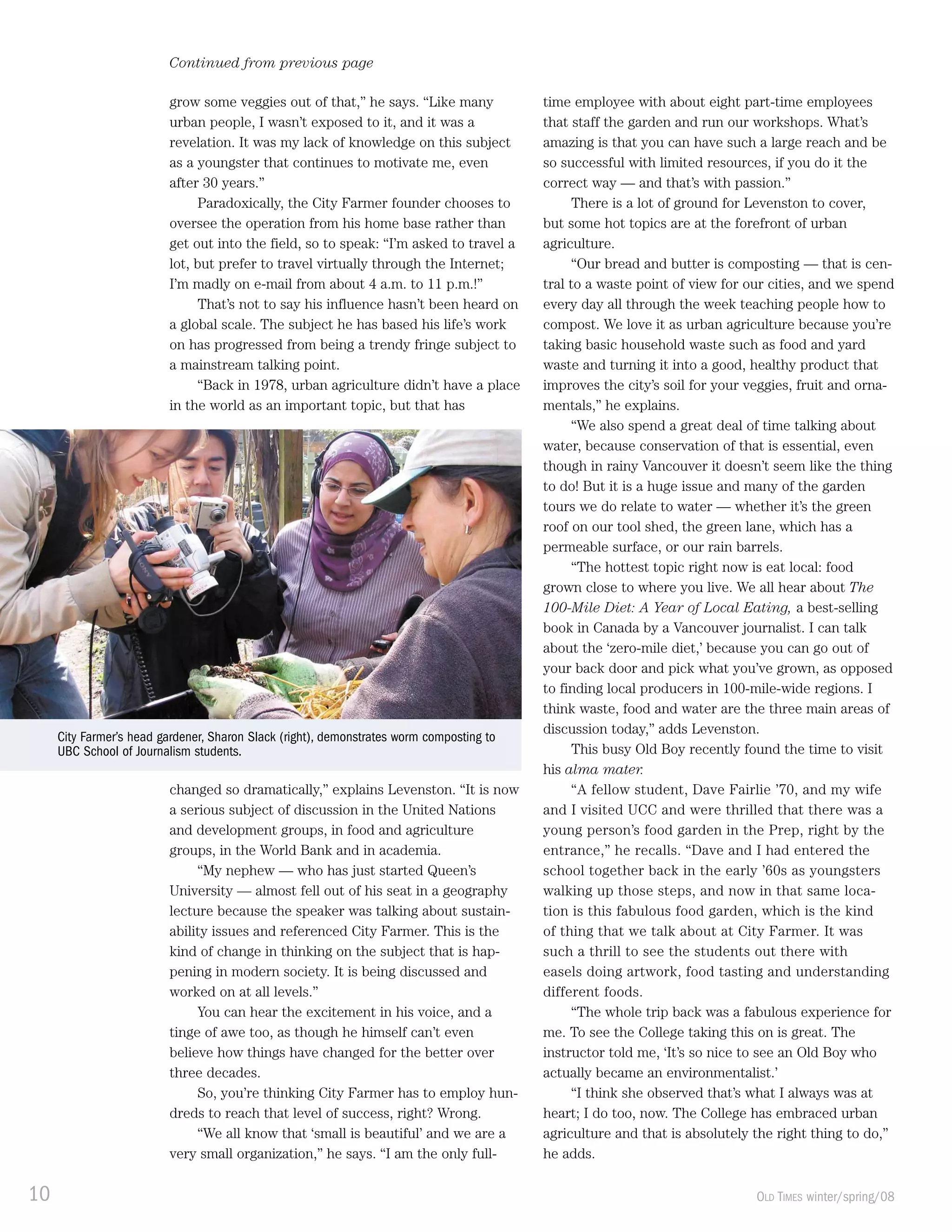Michael Levenston ('70) founded the City Farmer Society in 1978 to promote urban agriculture and sustainability. As the global expert in this field, he has helped urban agriculture transition from a fringe topic to a mainstream discussion. Though City Farmer is a small non-profit with few employees, its website receives 100,000-200,000 visitors per month and Levenston is frequently interviewed by media outlets worldwide. Some of City Farmer's most popular programs include worm composting and educating the public on growing their own food in urban areas. Levenston remains passionate about his work after 30 years of promoting urban agriculture.



